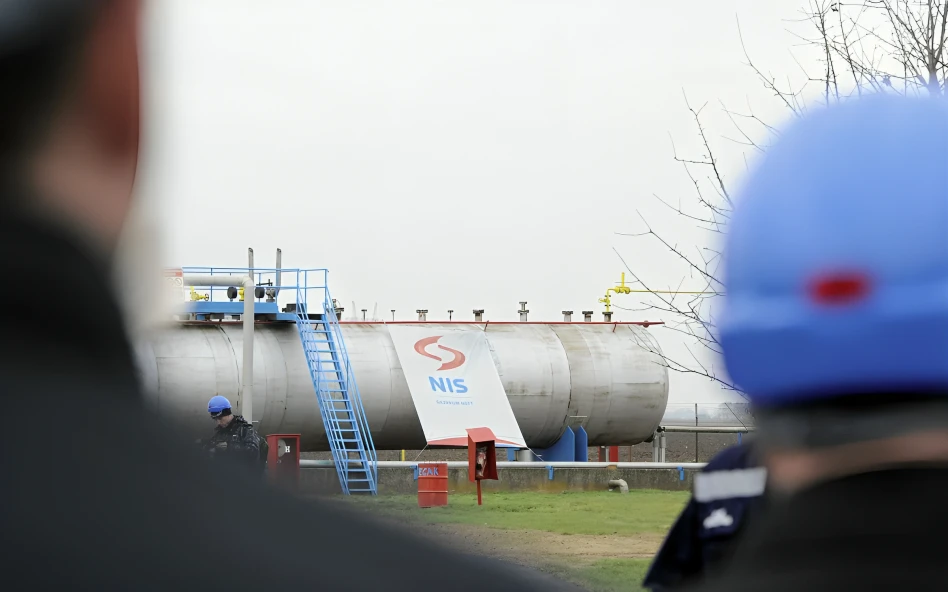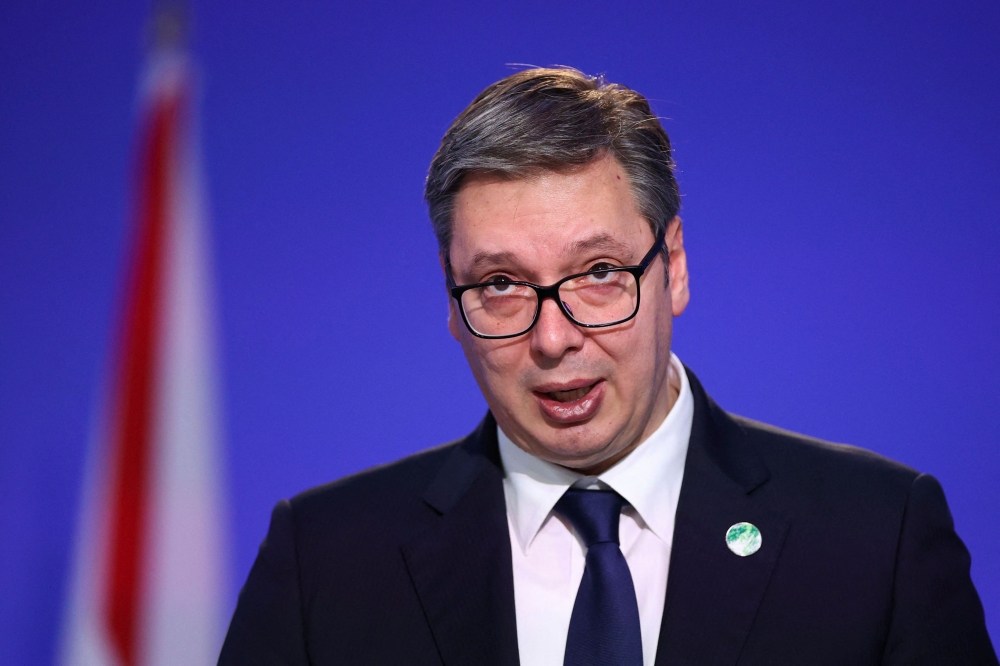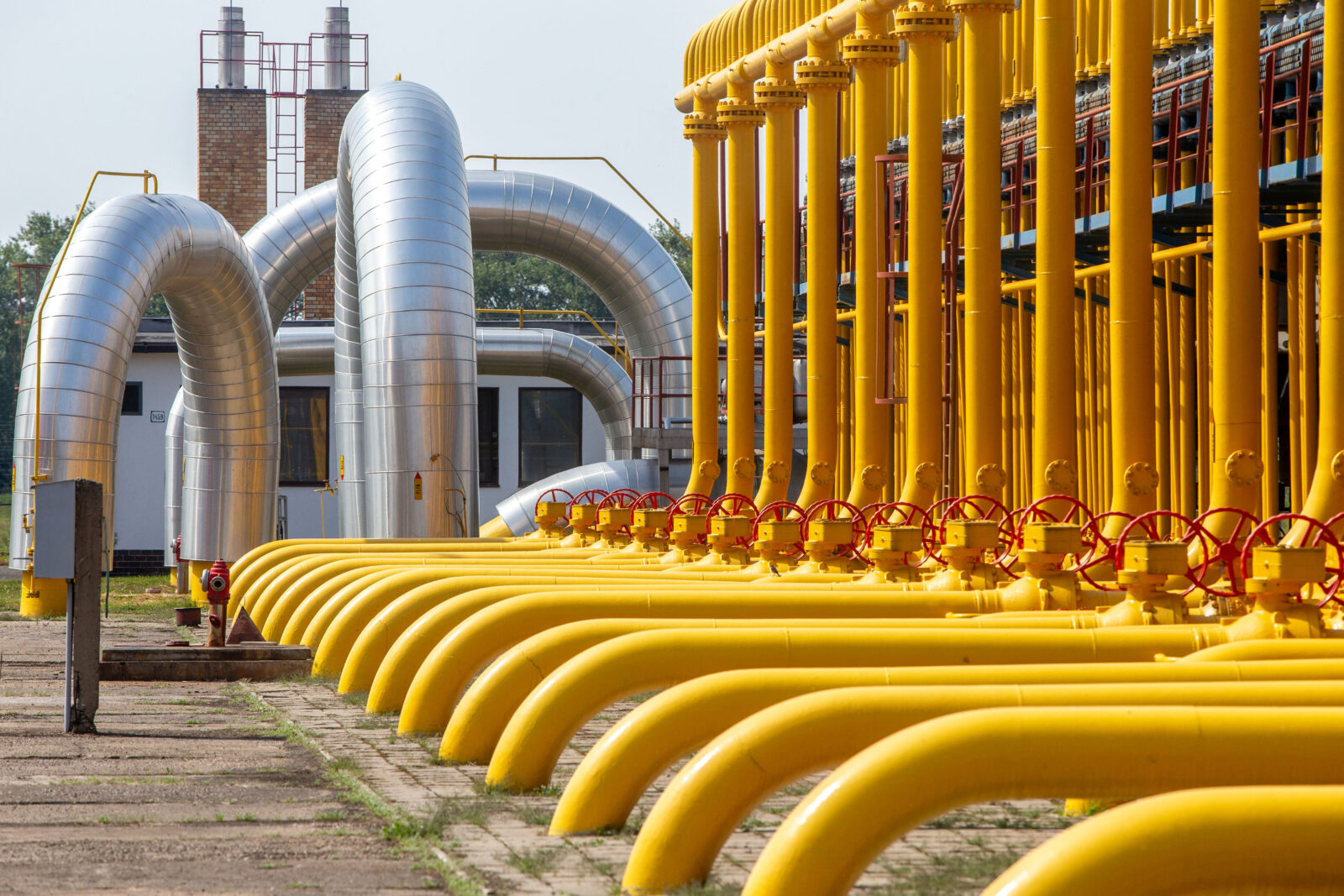Serbia’s oil sector to face ‘full sanctions’ from US in January, Serbian president confirms
 Serbian President Aleksandar Vucic confirms U.S. sanctions on Petroleum Industry of Serbia (NIS) set for mid-January. (Courtesy of NIN)
Serbian President Aleksandar Vucic confirms U.S. sanctions on Petroleum Industry of Serbia (NIS) set for mid-January. (Courtesy of NIN)
Serbian President Aleksandar Vucic confirmed Sunday that the United States will impose “full sanctions” on the Petroleum Industry of Serbia (NIS), a company largely owned by Russian energy giant Gazprom Neft.
In an interview with Serbia’s Radio and Television (RTS), Vucic stated that the sanctions are set to take effect in mid-January. He clarified that the measures are not related to Russia’s military actions or financial matters but are aimed at pressuring Serbia to align more closely with U.S. policies.
Vucic pointed to two primary uncertainties: whether the sanctions will target the entire Russian management of NIS or just specific shares, and the exact timing of the enforcement.

The Serbian president emphasized that the government is taking steps to buy time and better prepare for the upcoming measures. Vucic also revealed plans to meet with the incoming U.S. Treasury secretary, expressing hope that some of the restrictions could be reconsidered once President-elect Donald Trump takes office.
Reassuring the public, Vucic assured citizens that Serbia has ample oil reserves and urged them not to worry about potential fuel shortages or stockpiling.
Serbia’s Mining and Energy Minister Dubravka Djedovic Handanovic confirmed that two specialized teams have been established to mitigate the impact of the sanctions on NIS and ensure the continuation of gas supply negotiations with Russia.
Gazprom Neft has held a significant stake in NIS since 2008, with both the U.S. and EU blacklisting the company in 2014.

Russia’s Gazprom halts flows to Europe
Meanwhile, Russia’s state energy giant Gazprom has ceased natural gas transit to Europe through Ukraine after the expiration of a five-year transit agreement.
The deal, signed in December 2019 between Gazprom and Ukraine’s national oil and gas company Naftogaz, officially ended on Jan.1. Both sides have previously signaled an unwillingness to renew the agreement amid the ongoing war between the two nations.
Following the gas cut-off, European natural gas prices rose above 50 euros ($51.78) per megawatt-hour, reaching their highest level in over a year, as buyers in Eastern Europe prepared for the halt in supplies.
Russian gas accounted for less than 10 percent of the European Union’s gas imports in 2023, however, some EU members remain heavily dependent on it due to geographical and political factors.



